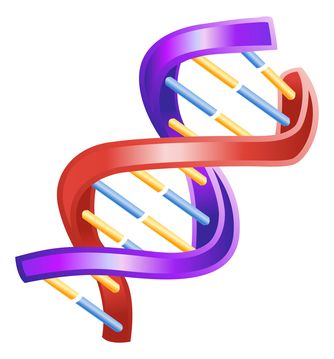Early Diagnosis of Alzheimer's: Do You Know the Signs?
Learn about the importance of early diagnosis for Alzheimer's disease, and the signs and symptoms to watch out for. Understand the role of genetic factors, and how medical professionals make a diagnosis using criteria and objective testing methods.

Doctors stress the importance of an early diagnosis Alzheimer’s disease.
Specialists encourage patients to get tested for memory problems. Signs of Alzheimer’s begin interfering with daily activities. This is particularly relevant for those who have a family history of Alzheimer’s. Researchers now have enough evidence that Alzheimer’s Disease is genetic. It runs in families.
Awareness of the early signs of Alzheimer’s is generally not self-evident. Friends or family members usually notice these symptoms before the patient does. This may be a time to gently suggest a trip to the doctor for a check-up.
Symptoms that could indicate the onset of Alzheimer’s are subtle and include:
Memory loss
This progressively Frequently forgetting where the car is parked. Misplacing important items like eyeglasses and keys. Putting items in odd places instead of in their normal places)
Inability to recall words for everyday items.
Words like hairbrush, coffee pot, bananas or bathtub may not come as easy anymore to the patient
Problems learning new things.
Or performing everyday routines.
Someone in the early stages of Alzheimer’s may:
- Repeat questions
- Exhibit issues with maintaining focus and attention
- Becoming agitated over a change in routine
Diagnosing Alzheimer’s. A family member may need to have feedback for the family.
Have you noticed behavioral changes such as:
- Apathy
- Unprovoked emotional outbursts
- Irritability
- Lack of energy
- and verbalizing thoughts in public that are inappropriate
More on the early diagnosis of Alzheimer's...
Who is Qualified to Make a Diagnosis of Alzheimer's Disease?
A person suffering symptoms of Alzheimer’s sees the family doctor. If the doctor suspects something may be wrong, blood work will be done.
This is sent to the laboratory to test for:
- Presence of nutritional
- Metabolic
- Endocrine
- Systemic disorders that may be causing dementia symptoms.
Problems stemming from:
- Hyper- or hypothyroidism
- Kidney
- Liver disease
- Deficient vitamin B12 levels
- Medication toxicity
- Unregulated electrolytes
Can contribute to memory and behavioral changes similar to Alzheimer’s dementia.
Other disorders that mimic dementia and make diagnosing Alzheimer’s difficult include:
- Vascular dementia–usually the result of strokes or cerebrovascular diseases
- Brain tumors that press on areas of the brain involved in memory, attention and judgment
- Subdural hematomas received because of trauma to the head
- Depression–attention deficits, confusion, apathy and memory impairment are all symptoms of depression
- Parkinson’s and Huntington’s disease accompanied by Lewy body dementia
- Creutzfeldt-Jakob Disease–a rare, genetic disorder predominantly affecting the brain
- Frontotemporal dementia–a non-genetic form of dementia
Neurologists, psychologists and psychiatrists... are often involved in diagnosing Alzheimer’s disease. They use criteria adapted from the NINCDS-ADRDA (National Institute of Neurological and Communicative Disorders and Stroke and Alzheimer’s Disease and Related Disorders Association).
Medical professionals base a diagnosis on the following:
- The patient exhibits marked deficits in at least two areas involving cognition (perception, judgment, reasoning and awareness)
- There has been a progressive worsening of cognitive and memory abilities
- Consciousness remains undisturbed
- Evidence of dementia has already been established by several objective testing methods
- The patient is between 40 and 90 years old
In addition to blood and urine analysis, doctors will test motor and reflex skills. Then observe the patient during the examination for... signs of distress, confusion or difficulties with speech.
Written and oral tests such as:
- Mental status exams
- St. Louis University Mental Status Examination
- Animal naming test
- Clock Drawing test
- Cognistat test
Are routinely given to people with dementia symptoms as well.
Use of Biomarkers for the Early Diagnosis of Alzheimer's Disease...
A biomarker is a detectable, naturally occurring substance within the body. These include:
- Glucose
- Neurotransmitters
- Cholesterol
- Cerebrospinal fluid
These may indicate the presence of a disease if the amount of the biomarker is too high or too low.
For example, glucose represents a definitive biomarker for diabetes. High cholesterol may predict a heart disease condition. Two biomarkers have been identified with helping in diagnosing Alzheimer’s. One reveals the amount of beta-amyloid in the brain. And one tells doctors the extent of nerve cell damage in the brain.
Brain Imaging Scans
Magnetic resonance imaging scans produce images. These reveal whether significant shrinkage of the brain has occurred. This is one of the signs of Alzheimer’s disease.
Researchers are also looking into the possibility that an MRI scan may be able to detect atrophy. That is associated with the onset of early dementia. This may show developing the disease before symptoms start affecting cognition.
Confirming a Diagnosis of Alzheimer's
There is a 90 percent accuracy rate when diagnosing Alzheimer’s. The only way to positively confirm a diagnosis of AD is by performing an autopsy.
Plaques and tangles are indicative of Alzheimer’s. They can be seen during an autopsy. The shrinkage of the hippocampus and the brain’s ventricles are also an indicator. This kind of confirmation is important to families that may carry the Alzheimer’s gene. Initiation of preventative measures may help reduce the risk to other family member’s. This can help delay or prevent developing the disease.
Sources
http://www.alz.org/professionals_and_researchers_diagnostic_procedures.asp
http://www.alz.org/documents_custom/alz_diag_criteria_faq.pdf
You might also like this article:









